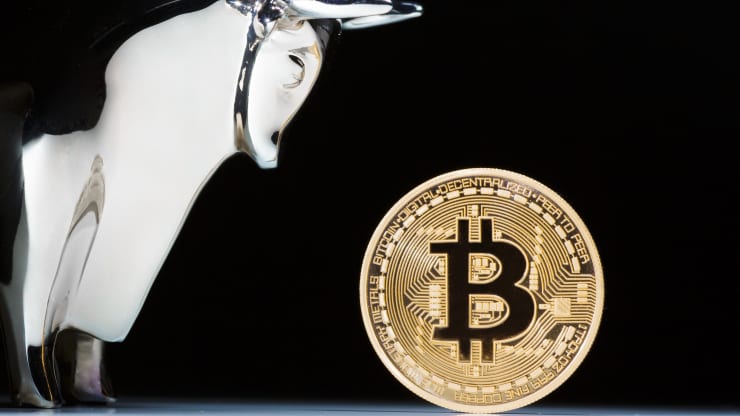
Bitcoin may not see a bull market until late 2024 or the beginning of 2025, if past price cycles are any indication, according to the co-founder of Huobi, one of the world’s largest cryptocurrency exchanges.
Du Jun told CNBC that bitcoin bull markets are closely tied to a process called halving, which occurs every few years.
This relates to so-called miners on the bitcoin network, which run powerful specialized computers to solve complex mathematical puzzles to validate transactions on the bitcoin network. Miners are rewarded in bitcoin as a result.
Halving is written into bitcoin’s underlying code and cuts in half the reward that so-called miners get for validating transactions on the cryptocurrency’s network. It occurs roughly every four years.
The last halving took place in May 2020, and in 2021, bitcoin topped an all-time high above $68,000. A similar occurrence happened when halving took place in 2016. The following year, bitcoin hit what was at the time a record high.
Read more: Cryptocurrencies tumble, with bitcoin falling 15% and ether down 20%
Following both those peaks, bitcoin tumbled. Currently, bitcoin is sat nearly 40% off its record high from November, though it’s still off some of the lows seen in January. The next halving event is scheduled to take place in 2024.
“If this circle continues, we are now at the early stage of a bear market,” Du said, according to a CNBC translation of his comments in Mandarin.
“It is really hard to predict exactly because there are so many other factors which can affect the market as well — such as geopolitical issues including war, or recent Covid, also affect the market,” he said.
“Following this cycle, it won’t be until end of 2024 to beginning of 2025 that we can welcome next bull market on bitcoin.”
The recent price drop in cryptocurrency has got some market participants worried that a so-called “crypto winter,” or an extended period of bearishness, could be imminent. During such times, bitcoin may trade in a sideways pattern.

